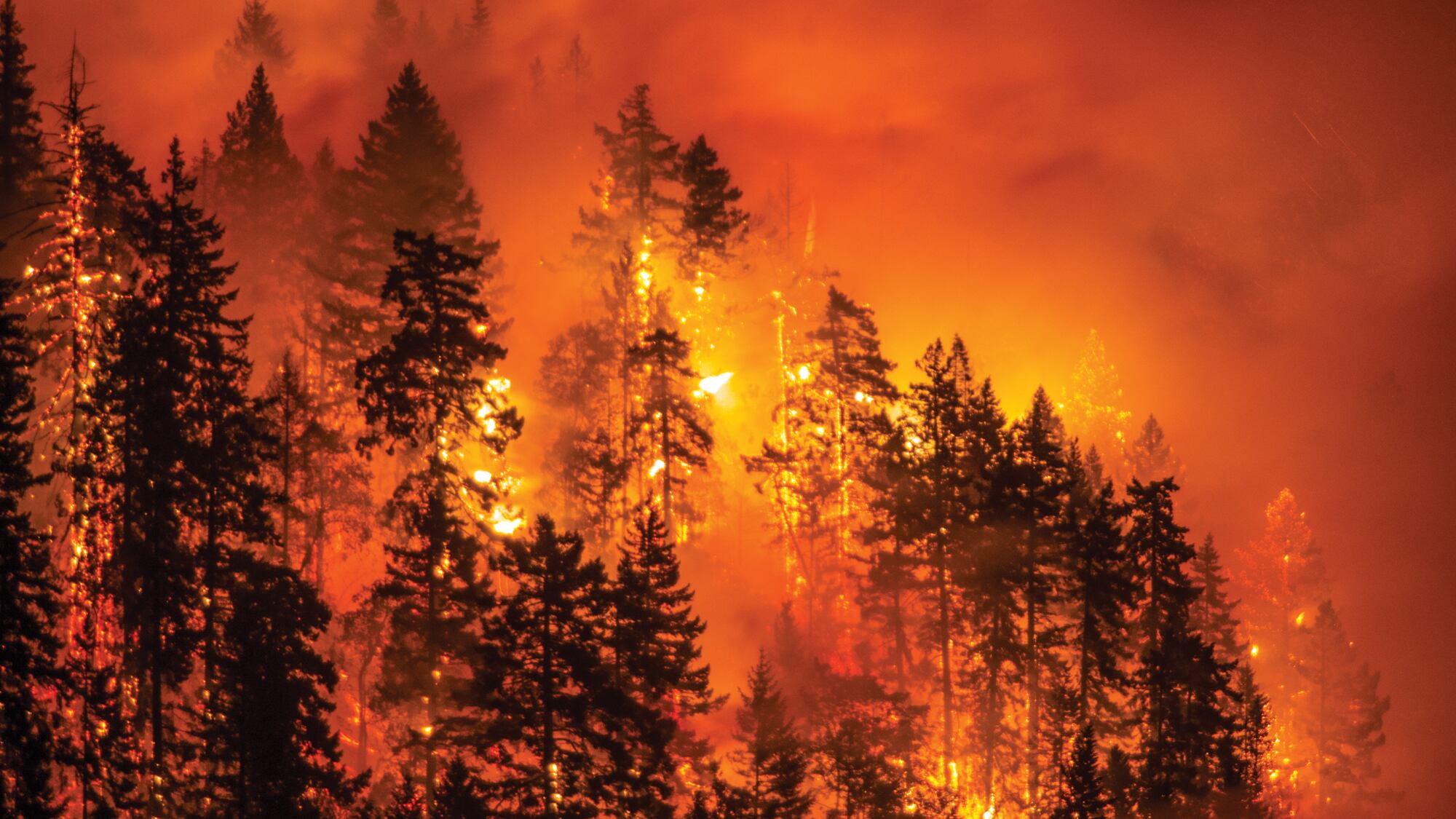What happened: In the late afternoon hours of a Labor Day weekend, a 15-year-old Vancouver, Wash., boy tossed a firecracker into Eagle Creek Canyon. It started a brush fire.
Within hours, the fire spread out of control through a dry Columbia River Gorge. East winds whipped the fire west from ridge to ridge, igniting the nation's most scenic waterfall district. Ash rained on Portland, and the sky was choked with smoke for nearly a week.

The fire burned nearly 49,000 acres and closed 135 miles of trails.
The teenager who started the inferno has been charged by the Hood River district attorney with reckless burning, depositing burning materials on forest lands, unlawful possession of fireworks, criminal mischief and recklessly endangering other persons. His trial will be open to the public.

Why it mattered: Oregon has seen bigger fires, and more devastating ones. But never before in modern Portland memory has a wildfire burned so close to the city—and damaged such a beloved wilderness. Many locals compared the devastation of places in the Columbia Gorge to the eruption of Mount St. Helens in 1980.
"If you go back to September and try to relive that, it was a traumatic experience for everyone throughout the region," says Michael Lang, conservation director at Friends of the Columbia Gorge. "You didn't have to live in the Columbia River Gorge to feel the impact of the soot raining down. People have described it as post-traumatic stress disorder, really, that feeling of anxiety and anxiousness that won't go away."

And few events have ever summoned so many fears at once: climate disasters exacerbated by global warming, the sense that Portland has grown too fast to manage newcomers enjoying the beauty that drew them here, and the infuriating thought of vandals failing to respect sacred places. (The boy who threw the firecracker has not been named by officials because of threats—including lynching—made against him and his family.)
On a more prosaic level, the flames erupted at the start of one of the biggest weekends for the small businesses that line the Columbia River Gorge. The lost revenue from Labor Day weekend was a major financial hit for the area.

"September is the big time of year when a lot of local businesses really make or break it," Lang says. "They really go into the black in September, particularly over the Labor Day weekend. But they were cut off from having any business at all."
Now that Interstate 84 is open again, officials are encouraging people to visit the businesses that lost out on the busy late summer season. But it's unlikely that many trails will reopen until next summer—if then.
